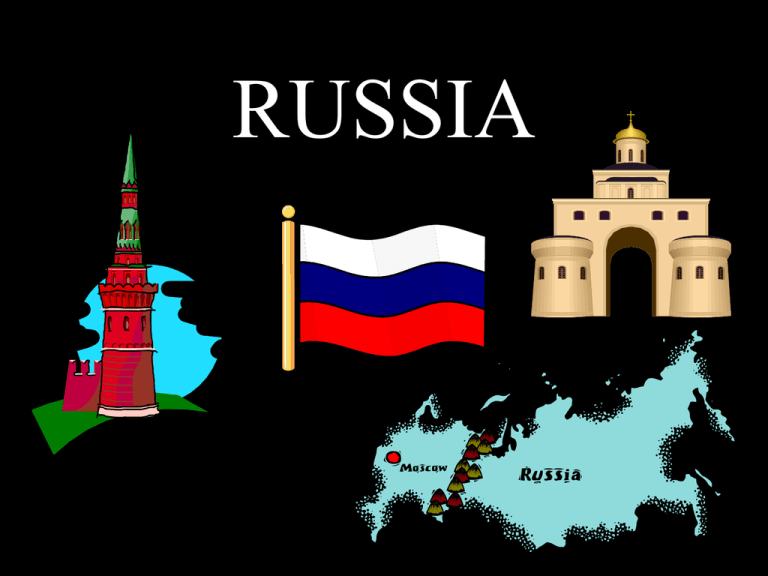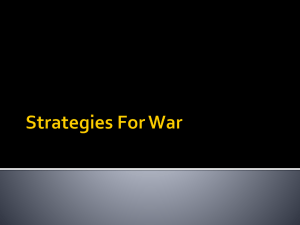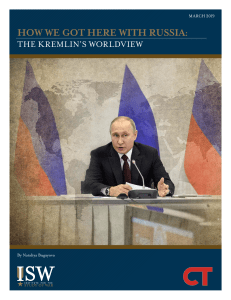RUSSIA
advertisement

RUSSIA Thinking About Russia • The Basics – Diversity • Russia and 14 other former Soviet states • The Russian Federation is the world’s largest country, sixth most populous • Most groups were forced into the Russian empire prior to the Communist revolution • By 1991 each republic had declared some form of sovereignty or independence from central rule – Poverty – The Environment • Chernobyl • Dumped nuclear reactors from subs into the ocean • Poor air quality • Water pollution Thinking Russia • – – – – – – Key Questions How and why did the USSR collapse? How has the legacy of the USSR affected Russia? Will Putin be able to strengthen the state? Will Russia become more democratic and legitimate? Can leaders strengthen institutions if the economy falters? How will Russia adapt to new global realities? The Evolution of the Russian State • • The Broad Sweep of Russian History Prelude to Revolution: Russia was not what Marx predicted because of – Backwardness – Failed reform – The weak state – Lenin and revolution The Evolution of the Russian State • • Lenin and the (Wrong?) Revolution Stalin, Terror, and the Modernization of the Soviet Union – Industrialization – Foreign Policy – The Purges The Evolution of the Russian State • • Khrushchev, Brezhnev, and the politics of decline The collapse of the Soviet state: The Gorbachev Years – The Party state – Reform • Glasnost • Democratization • Peristroika • Foreign policy • Crisis and collapse Between Dictatorship and Democracy • Birth pangs – Not a clean break from the old order – Very poor economic conditions – Ethnic conflict – Loss of power – Communist Party of the Russian Federation – Shock therapy called for by the opposing end of the spectrum – New constitution – Yeltsin in political deadlock Between Dictatorship and Democracy • Putin and Stability – Yeltsin’s surprise resignation – Popular – Effective politician – Has strengthened institutions despite lingering social, economic, and political problems – In building up the power of the Kremlin and other parts of the central government, Putin has undermined important aspects of democracy, albeit without removing basic freedoms or eliminating competitive elections. Political Culture and Participation • • Political Culture Political Parties and Elections • elections • parties today • United Russia • Yaboloko • Union of Right Forces • Fatherland-All Russia • Liberal Democrats • Balance Sheet The Russian State • • • • • • • The presidency The Oligarchs Parliament The bureaucracy The judiciary The federation The military Public Policy • • The Economy – How would they shift from a centrally planned economy in which the state owned virtually everything to one based on private ownership and a freer market? – How could they ensure that the fruits on these changes would be shared by all Russians? Foreign Policy – Has been largely pragmatic: adapted to status of middlelevel power, developed reasonable relations with neighbors, began putting as much emphasis on economic as on geopolitical issues in foreign policy. – Relations with the U.S. Feedback • After 1991, major media in private hands, mostly of the oligarchs; biased media • Today, it’s television that counts; newspaper circulation has plummeted • Putin has reasserted state control over the central organs of the mass media after the oligarchs turned on him






